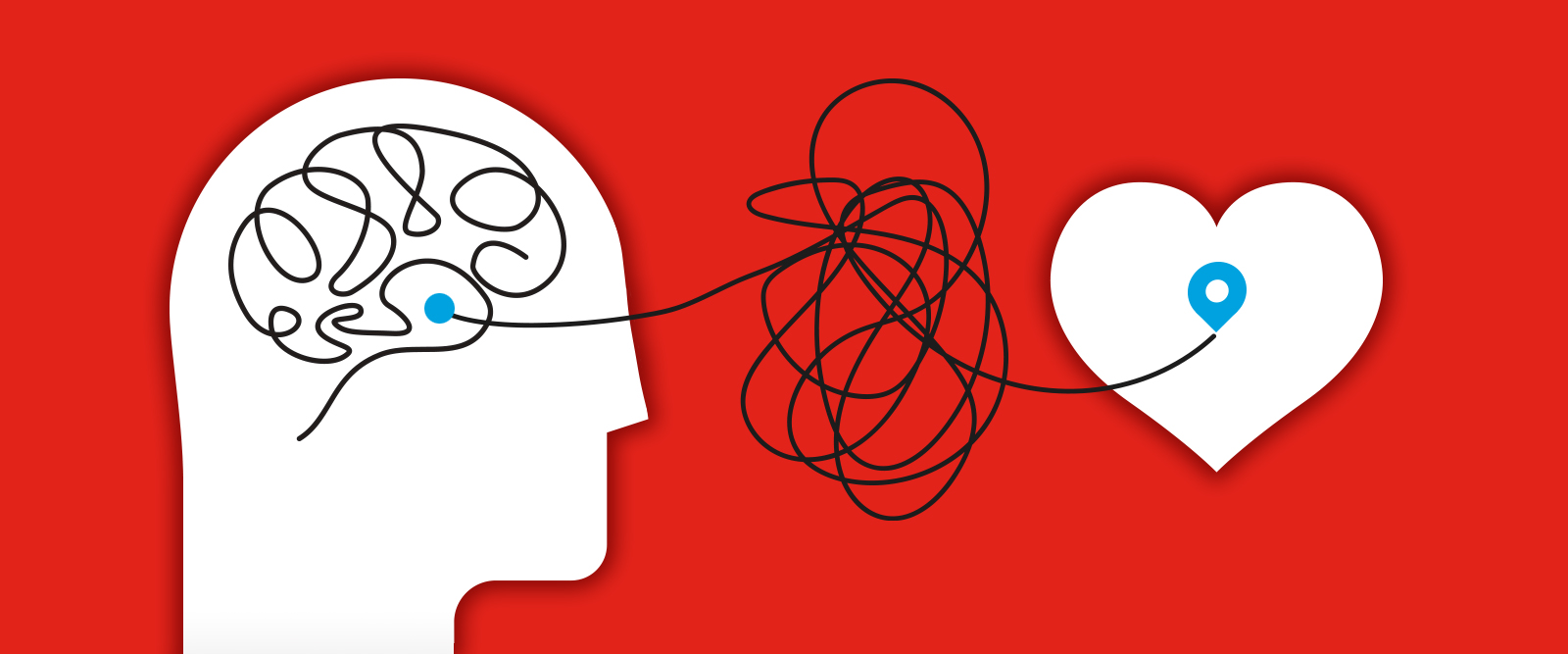I'm falling in love? It may be, even if it's too early to say, in fact I've only known her for a little over a week and I haven't met yet even though I think about her constantly, and I don't know what her feelings are. But many signals tell me something could be born, I just have to understand if my brain thinks good.
Let's see with this article why we end up falling in love and what determines the state of being in love. After all, it seems to be just a question of chemistry, or maybe not?
Romantic films enchant us, two pigeons cooing on the roof opposite make us stay dreaming at the window, listening to the song of our first kiss in a completely unexpected way can move us, but love - regardless of how much we like to idealize it - does not it is nothing more than a sophisticated form of corruption of which we are all unaware victims.
Anecdotally, love is a matter of the heart. However, the main organ affected by love is actually the brain. Where is love “found” in the brain, and what does it do to our minds and bodies, according to science?
In reality, love in its various typologies (romantic, erotic, maternal) has rarely been the subject of scientific investigation in the past; in part, this may be due to the fact that love has always been the domain of poets and artists; perhaps psychologists and clinicians, but it has certainly not been taken into great consideration in the field of experimental science, i.e. neurobiological research.
Therefore, our knowledge in this field has yet to evolve and only recently has research brought to light detailed information on the molecular and physiological "ingredients" of the phenomenon of love.
The role of dopamine
The passion of love arouses feelings of euphoria and happiness that are often overwhelming and indescribable, because when we fall in love it is as if a chemical storm has been unleashed in the brain.
And the areas that activate in response to these feelings are the regions of the brain that contain high concentrations of a neuromodulator associated with reward, craving, addiction and euphoric states, namely dopamine. Dopamine is released by the hypothalamus, a structure located deep in the brain that serves as a link between the nervous and endocrine systems.
Love is a mutual giving and receiving of something very gratifying and therefore dopamine is produced both when we receive something pleasant from our partner and when we gratify him by transmitting our love to him.
The release of dopamine brings about the sensation of “feeling good” in several respects since dopamine appears to be linked not only to relationship formation but also to sex, which is considered a rewarding and “feel-good” exercise.
Another property of dopamine is that it is initially released only at the moment of excitement, but then the brain gets used to releasing it even before excitement, in anticipation of a hug, a kiss or even the simple presence of a loved one.
The role of serotonin
An increase in dopamine levels is also associated with a decrease in another neurotransmitter, serotonin. In particular, studies have shown a marked reduction in serotonin especially in the early stages of falling in love, just as occurs in patients suffering from obsessive disorders . Love, after all, is a kind of obsession , in its initial stages the thought is incessantly directed towards that single individual, he or she with whom we are falling in love; just as actions and behaviors are directed towards the purpose of getting closer to the partner.
This can therefore give us a "biological" reason why people in love tend to fixate on the object of their affection, narrowing the field of interests and thoughts to very little else.
Furthermore, precisely due to a reduction in serotonin levels, a substance involved in the process of mood regulation, if on the one hand we experience that intense euphoria mentioned above, on the other we are easily candidates for falling prey to anxiety and to sadness if we notice signs of rejection from the desired partner.
The role of nerve growth factor
The initial stages of falling in love also seem to correlate with another substance, nerve growth factor. This was found to be higher in those who have recently fallen in love than in those who are not in this condition or who have had a long-established relationship. A significant correlation was also found between nerve growth factor concentration and intensity of feeling.
The role of other neurotransmitters
Our nervous system also releases norepinephrine, the substance responsible for the physical effects of passion (feeling of heat, sweating, increased heart rate, tremor, insomnia ) which complement the sense of emotion and excitement.
Finally, in love passion, the production of endorphins increases which promote well-being and relaxation in a climate of stability and trust.
The seat of love: the brain areas
In human history we have always tried to identify the part of the body where emotions are formed, but today scientific research has given us the true seats of feelings and emotions. In fact, neuroimaging tools such as MRI (Functional Magnetic Resonance Imaging) are used, which help us understand which brain areas are activated when we are in love. Some of these areas are located in the cerebral cortex itself and others are located in subcortical stations. They all make up parts of what is known as the emotional brain.
First we consider the hypothalamus, which we mentioned above in connection with the production of dopamine. Studies conducted on this structure have highlighted that the activation of the hypothalamus occurs both when experiencing feelings of "romantic" love and with sexual excitement, but not when we have feelings of "maternal" love.
An element of great interest was the discovery that these regions have inhibitory connections with other areas of the brain. That is, the frontal cortex, and the amygdala, a structure located at the apex of the temporal lobe.
Therefore we are witnessing the phenomenon whereby an increase in activity in some areas involved in love determines a decrease in activity in other cortical areas, with the consequences that we are going to examine.
Cortical deactivations and suspension of judgment
It is common observation that the all-encompassing passion of love is often accompanied by a suspension of judgment or a relaxation of the criteria of judgment with which we evaluate others. This critical ability is precisely a function of the frontal cortex. Its inactivation explains why, when we are deeply in love, we suspend the critical judgment that we apply in other contexts to evaluate people, situations or our behaviors.
Others are often surprised by certain choices made by those in the early stages of romantic infatuation, finding them irrational and incomprehensible. Indeed, in this particular emotional state, rational judgments are suspended or no longer applied with the same rigor. In this phase of the love story, the partner appears perfect , without defects, the only person to whom one wants to give attention and love.
Nor do moral censorships exist, because the ability to judge in moral matters is also attenuated, since morality is also associated with the activity of the frontal cortex.
The madness of love
Euphoria and suspension of judgment can generate states that other people might interpret as a form of insanity. This is the madness celebrated by poets and artists and certainly the neurological explanations of a deactivation of the brain parts involved in the creation of judgments helps better understand the obvious irrationality of love.
Nietzsche wrote in Thus Spoke Zarathustra: «There is always a little madness in love. But there is always a bit of reason in madness"
This reason is to be found precisely in the patterns of neurobiological activation and deactivation expected in love. These serve a sort of “higher purpose,” which aims to unite (otherwise unlikely) pairs to increase the variability of the species.
However, it should be underlined that if people in love suspend judgment on the people who are the object of their feelings, they do not necessarily suspend judgment in other fields. They might, for example, be perfectly capable of judging the quality of a book or scientific work.
Suspension of judgment, when it comes to love, is selective and acts on a very specific set of brain connections.
The other area of the brain that undergoes a deactivation process during falling in love is the amygdala. A structure that coordinates responses to fear, helping human beings to stay as far away as possible from potentially dangerous situations.
Its deactivation leads to a reduction in responses to fear , with the consequence of putting oneself more easily in risky situations in order to be with the loved one.
But how long does the passion phase last?
According to the most recent studies, this "storm" of chemical transmitters lasts from 12/18 months up to about 3 years.
Then, inevitably, everything returns to normal. Sadly normal for those who need to experience love as an experience that is continually out of the ordinary. Hence the tension towards a new subject who can trigger those mechanisms of well-being, in search of another three years of happiness.
(I am not a doctor, nor a researcher, so much of this article, excluding personal reflections, was collected from the web. If anyone thinks I have broken any copyright rules, please tell me and I will immediately delete the text in question.)











